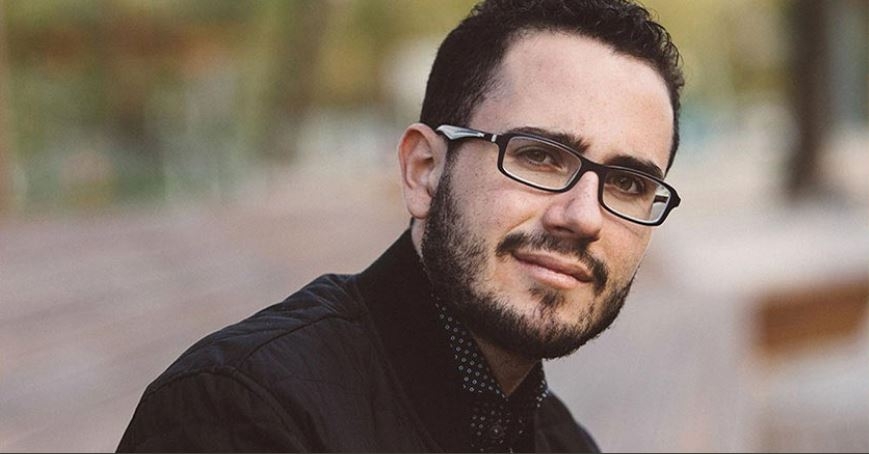The Gilmore kicked off its 2018-2019 season on Sunday evening with the first performance from its Rising Stars series. Italian concert pianist Luca Buratto impressed a near-full house at the Wellspring Theater in Kalamazoo with a century-spanning selection from his repertoire.
Buratto's dramatic, enthusiastic playing style was a delight to watch in and of itself; he performed for an hour and 30 minutes with a 15-minute intermission, including a beautiful encore piece that had audience members clamoring after the performer to ask him the name of the piece at the small reception held afterward.
As he approached the piano, Buratto appeared unassuming, almost shy — immediately upon sitting down and placing his hands on the keys, his demeanor changed completely. The performer launched wholeheartedly into a bright, effervescent rendition of Johann Sebastian Bach's “Italian Concerto” in F Major (BWV 971). His passion for both the craft and the pieces he selected was evident from the moment he began – in his fervent facial expressions, in the flourish of his hand as it left the keys – and it did not wane until after he left the stage.
Buratto transitioned effortlessly from the rapid, forceful, untitled first movement of the Concerto to the gentle, quiet andante movement, and back again to the rapid force of the third and final presto movement. He did so without losing any emotional intensity. The quieter moments of the performance seemed to reveal an intimacy between Buratto and the piano; at times, I felt like an intruder on a secret rendezvous, as the pianist was so clearly in his own world without regard for the audience or the camera that livestreamed the performance to the Gilmore website. The audience seemed equally entranced by Buratto.
Next came a 2015 piece by British composer Thomas Adès titled “Blanca Variations,” from his opera The Exterminating Angel, which was based on a 1962 Luis Buñuel film of the same name. Buratto kept the surrealist-inspired piece anchored firmly in reality with his absolute mastery of the piece's wide range of dynamics, even as it grew from structured and romantic to chaotic and dissonant.
Buratto followed “Blanca Variations” with Beethoven's Sonata No. 23 in F Minor, Op. 57 (“Appassionata”), and the performance certainly lived up to the name of the piece. This selection was darker than the ones before it, and Buratto glided through technically difficult sections all the same. It occurred to me during the first movement that this piece and the one played before it were composed 200 years apart, and the performer was still able to make them sound like they were meant to belong to the same collection.
There were points during the second movement of the Sonata where the piece became simpler and the playing followed suit; in these moments, I found myself wishing Buratto would get back to the more complicated, passionate, colorful sections that had me and the rest of the audience enraptured from the beginning.
After the intermission, Buratto hardly waited for the room to go quiet before he launched into Adès's Mazurkas, Op. 27. Each movement of the piece was slightly darker and more experimental than the last, and the pianist clearly descended further and further into his comfort zone as the movements became more dreamlike — nightmarish, even.
For the final piece of the program, Buratto brought Schumann's Sonata No. 3 in F Minor, Op. 14, to life before the audience's eyes. Again, his engagement with the piece was a delight to watch; he seemed to be physically in conversation with the composer throughout the performance. Buratto soared through a vast range of tempo, dynamics and rhythms without losing even a bit of the emotional intensity the audience had come to expect. The romantic, longing energy of the piece was palpable as Buratto gestured emphatically toward the keys with a non-playing hand, almost as if he was pulling the air to bend the sound waves to his will.
He finished the piece strongly and, after shouts of “bravo!” returned to the stage for an absolutely gorgeous encore of Schumann's Davidsbündlertänze #14, Op. 6, a brief melodic piece in E flat major. By the time he finished and took his final bows, the crowd was buzzing with excitement and praise after a deeply passionate, enthusiastic performance by Buratto.
Luca Buratto
The Gilmore
Sept. 16
thegilmore.org





